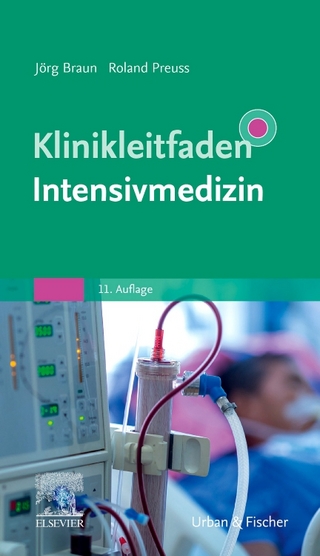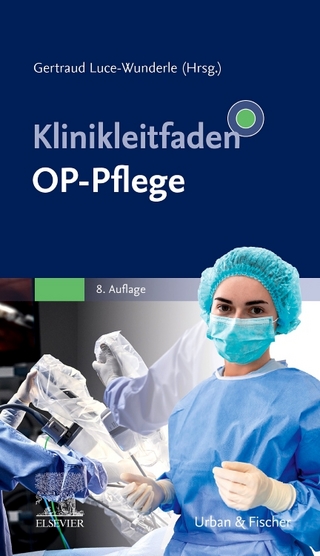
Advancing Surgical Education
Springer Verlag, Singapore
978-981-13-3127-5 (ISBN)
Debra Nestel, PhD, is Professor of Simulation Education in Healthcare at Monash University, and Professor of Surgical Education at the University of Melbourne, Australia. Debra is program lead for the Graduate Programs in Surgical Education (Department of Surgery, University of Melbourne & Royal Australasian College of Surgeons). She has published over 200 papers and has edited books on healthcare simulation and simulated patient methodology. Debra is Editor-in-Chief of Advances in Simulation. Kirsten Dalrymple, PhD, is Principal Teaching Fellow and Co-director of the Master’s in Surgical Education at Imperial College London’s Department of Surgery and Cancer. Previously, Kirsten had a major role in curriculum reform and faculty development at the University of Southern California School of Dentistry. From 2005-2010 she led educational development programs for medical staff at Imperial. John Paige, MD, has been a faculty member of the Department of Surgery at the Louisiana State University (LSU) Health New Orleans School of Medicine since 2002. He is currently an Associate Professor of Clinical Surgery, with additional appointments within the Department of Anesthesiology, Department of Radiology, and at the Pennington Biomedical Research Center. He is a practicing general surgeon with fellowship training in minimally invasive surgery. John Paige, MD, has been a faculty member of the Department of Surgery at the Louisiana State University (LSU) Health New Orleans School of Medicine since 2002. He is currently a Professor of Clinical Surgery, with joint appointments within the Department of Anesthesiology and the Department of Radiology. He is a practicing general surgeon with fellowship training in minimally invasive surgery, and he serves as the Director of the American College of Surgeons Accredited Education Institute at the LSU Health New Orleans School of Medicine Learning Center. Rajesh Aggarwal MD PhD FRCS FACS is a surgeon and educator. He trained as a surgeon in the United Kingdom and has held academic and clinical posts at Imperial College London, the University of Pennsylvania and most recently at McGill University where he was Director of the Steinberg Centre for Simulation and Interactive Learning. In 2017, Rajesh took on a role in strategic ventures and innovation at Thomas Jefferson University and Jefferson Health, Philadelphia, USA.
Part 1 Overview: Foudnations of surgical education.- 1 Celebrating surgical education.- 2 Surgical education: A historical perspective.- 3 The contemporary context of surgical education.- 4 Surgical education leadership and the role of the academy.- 5 The governance of surgical education: The role of the Colleges.- Part 2 Overview: Theories informing surgical education.- 6 Cognitive neuroscience and design of surgical education.- 7 Expertise theories and the design of surgical education.- 8 Helping learners through transitions: Threshold concepts, troublesome knowledge and threshold capability framework in surgery.- 9 Communities of practice and surgical training.- 10 Activity theory and the surgical workplace.- 11 The role of power in surgical education: A Foucauldian perspective.- 12 Constructing surgical identities: Being and becoming a surgeon.- 13 Constructing surgical identities: Becoming a surgeon educator.- Part 3 Overview: The practice of surgical education.- 14 Designing surgical education programs.- 15 Selection into surgical education and training.- 16 Models of teaching and learning in the operating theatre.- 17 Supporting the development of psychomotor skills.- 18 Patients and surgical education: Rethinking learning, practice and patient-engagement.- 19 The role of verbal feedback in surgical education.- 20 The role of assessment in surgical education.- 21 Entrustable professional activities in surgical education.- 22 Revalidation of surgeons in practice.- 23 Demystifying program evalution for surgical education.- 24 Simulation in surgical education.- 25 Developing surgical teams: Theory.- 26 Developing surgical teams: Application.- 27 Supporting the development of professionalism in surgeons in practice: A virtues-based approach to exploring a surgeon's moral agency.- 28 Managing underperformance in trainees.- 29 Patient safety and surgical education.- Part 4 Research in surgical education.- 30 Researching in surgical education: An orientation.- 31 Researching in surgical education: A surgeon perspective.- 32 From dense fog to gentle mist: Getting started in surgical education research.- 33 Reviewing literature for and as research.- 34 Measuring the impact of educational interventions: A quantitative approach.- 35 Understanding learning: A qualitative approach.- 36 Ethical issues in surgical education research.- 37 Remaining "grounded" in a laparoscopic community of practice: The qualitative paradigm.- 38 The nature of nurture in surgery: A drama in four acts (so far).- 39 Approaching surgery simulation education from a patient-centric pathway.- Part 5 Future directions in surgical education.- 40 Surgical education in the future.- 41 Finally, the future of surgical educators.
| Erscheinungsdatum | 22.11.2019 |
|---|---|
| Reihe/Serie | Innovation and Change in Professional Education ; 17 |
| Zusatzinfo | 30 Illustrations, black and white; XIV, 490 p. 30 illus. |
| Verlagsort | Singapore |
| Sprache | englisch |
| Maße | 155 x 235 mm |
| Themenwelt | Medizin / Pharmazie ► Medizinische Fachgebiete ► Chirurgie |
| Medizin / Pharmazie ► Studium ► 1. Studienabschnitt (Vorklinik) | |
| Sozialwissenschaften ► Pädagogik ► Berufspädagogik | |
| Sozialwissenschaften ► Pädagogik ► Erwachsenenbildung | |
| ISBN-10 | 981-13-3127-8 / 9811331278 |
| ISBN-13 | 978-981-13-3127-5 / 9789811331275 |
| Zustand | Neuware |
| Informationen gemäß Produktsicherheitsverordnung (GPSR) | |
| Haben Sie eine Frage zum Produkt? |
aus dem Bereich


